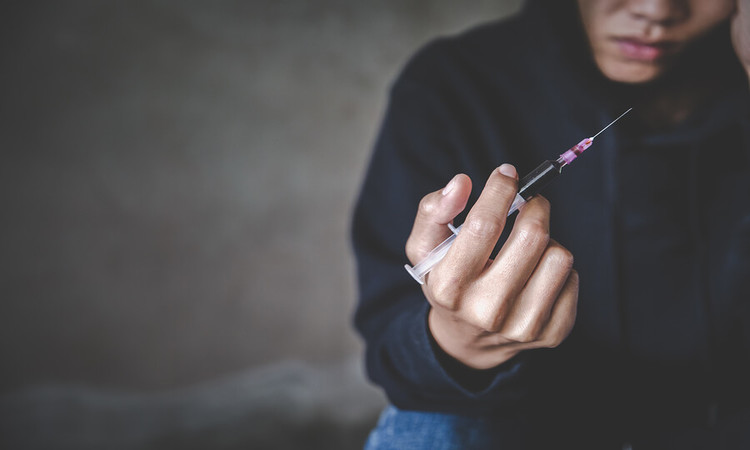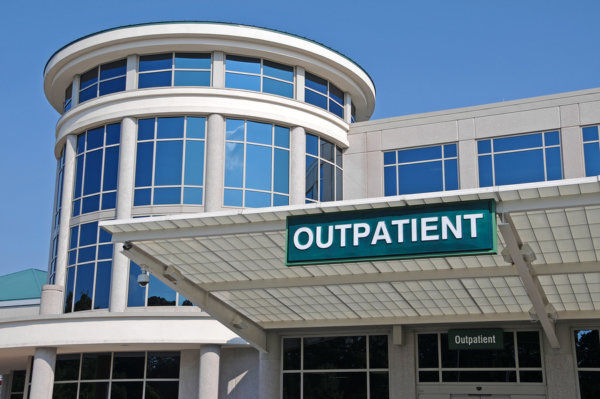
Heroin addiction is a severe, debilitating, and potentially devastating substance use disorder. Heroin addiction symptoms may include any of the following:
- Shortness of breath
- Dry mouth
- Constricted pupils
- Sudden changes in behavior
- Disorientation
- Cycles of hyper-alertness that alternate with periods of unconsciousness or “nodding off”
- Droopiness as if arms and legs are heavy
- Behavioral signs that may indicate heroin abuse or addiction include the following:
- Lying and deceptive or secretive behavior
- Avoiding eye contact
- Significant increase in time spent sleeping
- Increase in slurred or incoherent speech
- A sudden decrease in performance at school or work, including expulsion or loss of employment
- Neglect of hygiene and physical appearance
- Loss of motivation and apathy regarding future goals
- Withdrawal from friends and family Spending time with new friends who seem sketchy or appear to do drugs
- Lack of interest in hobbies and activities once considered enjoyable
- Repeatedly borrowing or stealing money or items from loved ones
- Hostile behaviors toward loved ones, such as blaming them for broken commitments
- Regularly issuing comments that indicate worsening self-esteem or body image
- Wearing long pants or sleeves to hide track marks, even in warm weather
Repeated users develop a tolerance to heroin, which often leads to increases in the frequency and amount of heroin consumption. With growing tolerance, more physical symptoms of heroin abuse and addiction may emerge, including the following:
- Noticeable weight loss
- Persistent runny nose
- Needle track marks on arms and other areas
- Infections or abscesses at injection sites
- For women, loss of menstrual cycle
- Cuts or scabs from skin picking
Options for Heroin Addiction Treatment
Modern treatment programs are typically steeped in psychotherapies, such as cognitive-behavioral therapy. This is an approach that addresses the underlying factors that have contributed to a person’s need to abuse substances, and can also treat co-occurring mental disorders, such as depression and anxiety.
Recovery By The Sea offers the following treatment programs:
Partial Hospitalization
During a partial hospitalization program (PHP), clients are provided with a structured daily routine that includes therapy, counseling, support groups, and other activities. The primary difference between PHP and inpatient treatment is that those in PHP are allowed to go home are not required to stay in the center overnight. This schedule allows them to visit with their families for support and also requires some degree of personal accountability.
A PHP program often works well for those who have already completed inpatient treatment, or have addictions that are not particularly severe.
Intensive Outpatient Treatment (IOP)
Intensive outpatient treatment is beneficial for patients who have undergone inpatient treatment and or PHP that still need a high level of medical and mental health support.
Patients may choose to stay in a sober living home, but will eventually be transitioned back into a routine that includes school or work and family responsibilities. In the mornings or evenings, patients attend treatment in a supportive environment of therapy and counseling, which is beneficial for sustaining an independent, drug-free life.
Outpatient Treatment (OP)

Outpatient programs are also designed for patients who have completed more intensive levels of care. They may also be effective for those who have relatively mild substance use problems.
This form of ongoing support can be vital for patients in their new sober life. Patients attend a minimal amount of weekly treatment sessions to help them cope with daily stressors and temptations. These sessions help to reinforce the patient’s resolve and keep them motivated as they transition back to a productive lifestyle.
Heroin Addiction Medications
Medication-assisted treatment (MAT) is a very beneficial and often essential approach that helps people wean themselves off of heroin. This is accomplished through the use of certain medications that mitigate withdrawal symptoms and cravings and help to prevent future drug use.
Medications often prescribed to treat heroin addiction include the following:
Buprenorphine and Suboxone
Buprenorphine is a partial opioid agonist, meaning that it works to activate the same receptors in the brain that heroin affects. Buprenorphine can dramatically reduce withdrawal symptoms and cravings, and it may also be beneficial for those who suffer from chronic pain.
Buprenorphine is considered to be generally safe and can be used long-term if needed. But although it has a relatively low risk of abuse, like other opioids, it can be habit-forming. For this reason, it should be used only as prescribed by a physician or addiction specialist.
Suboxone includes a combination of buprenorphine and naloxone. Naloxone is an extremely effective antidote for an opioid overdose that reverses life-threatening central nervous system depression. As a component of Suboxone, naloxone serves as an abuse-deterrent and overdose prevention measure.
Naltrexone
Naltrexone (Revia, Vivitrol) is a drug known as a full opioid antagonist. It works in the brain by attaching tightly to opioid receptors. In doing this, it prevents heroin from activating receptors and from inducing euphoric-like effects. For this reason, it minimizes the person’s cravings to use opioids. Naltrexone is considered to be a very safe medication that can be used for years if necessary to help a person avoid relapse.
Methadone is a synthetic opioid that, before the advent of other medications, was used for opioid replacement therapy. Methadone has a higher potential for abuse than the aforementioned medicines, has strict limitations on its use, and is not offered at Recovery By The Sea.
Ongoing Treatment and Relapse Prevention
After a person completes a treatment program, ongoing treatment is still needed to sustain long-term recovery. Regular visits to doctors, counselors, and therapists can help former heroin users stay sober. Therapists work to help people continue to identify and overcome triggers and cope with the daily stresses of life. They can also teach patients better ways to cope and help them gain more insight into the nature of their addiction.
Finally, support groups, such as Narcotics Anonymous, provide emotional support and accountability in a safe, welcoming environment. These groups can be found integrated as part of comprehensive treatment programs, but can also be found in a variety of stand-alone locations, such as churches and local meeting halls.

Tips for Preventing Relapse
Use Medication As Prescribed
It’s vital that people in recovery consistently use their medication as it has been prescribed and for as long as directed. People who are given medications during treatment should continue to use them until a health provider or addiction specialist says that it’s safe to discontinue use. Stopping these medications can lead to more withdrawal symptoms and cravings, which all too often contribute to relapse and even overdose.
Attend Therapy, Counseling, and Support Group Meetings
Addiction is a chronic, long-lasting disease that has effects that persist long after detox and well into recovery. Even people who have been clean from heroin for months or years can be susceptible to relapse, especially when experiencing grief or being faced with a particularly stressful situation.
Heroin has enduring effects on the brain’s reward system that will persist after the drug has been eliminated from the body. While a stressful situation can tempt a person in recovery to use again, support from a counselor, therapist, or group meeting can lessen the temptation to use and circumvent a relapse before it happens.
Getting Help for Addiction
If you are suffering an addiction to heroin, other drugs, or alcohol, help is available! Recovery By the Sea offers comprehensive programs that include therapies and services clinically proven to be essential for the process of recovery. We also treat comorbid mental health disorders, such as PTSD, anxiety, and depression.
You don’t have to suffer any longer. We can help you get on the path to long-lasting sobriety and well-being, one step at a time!
READ THIS NEXT: Signs of Overdose and What to Do